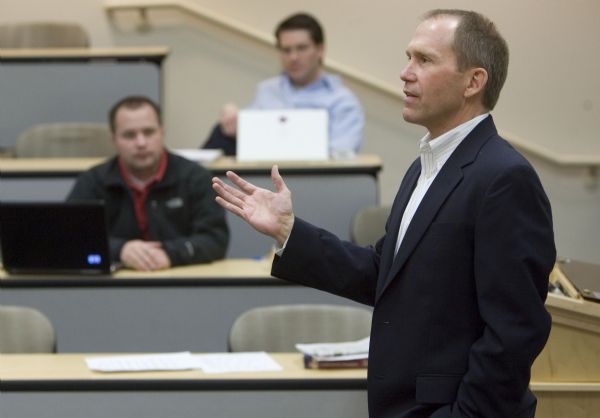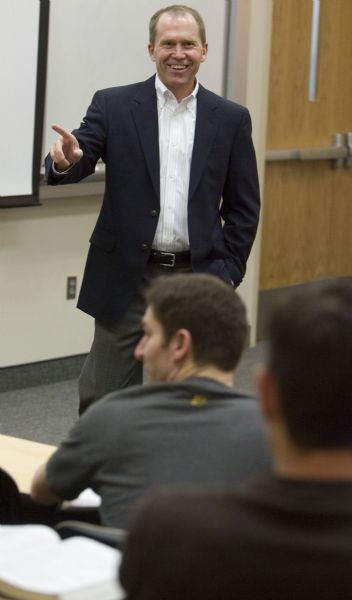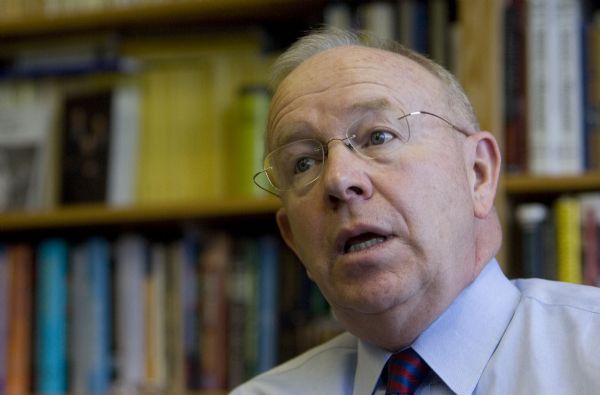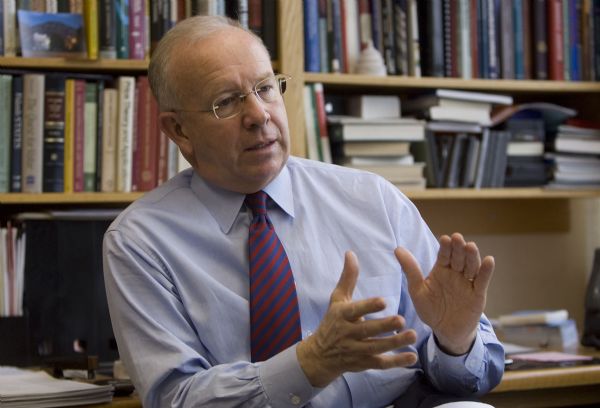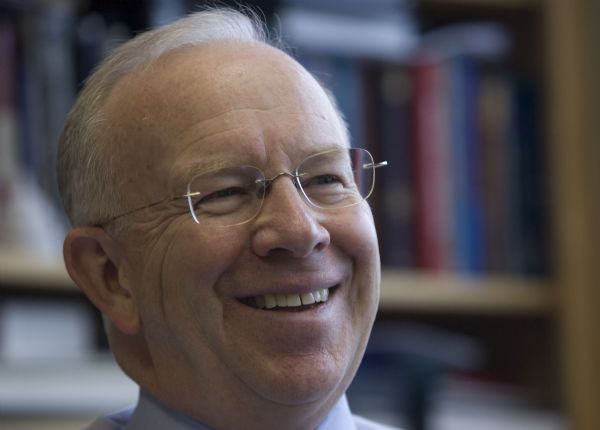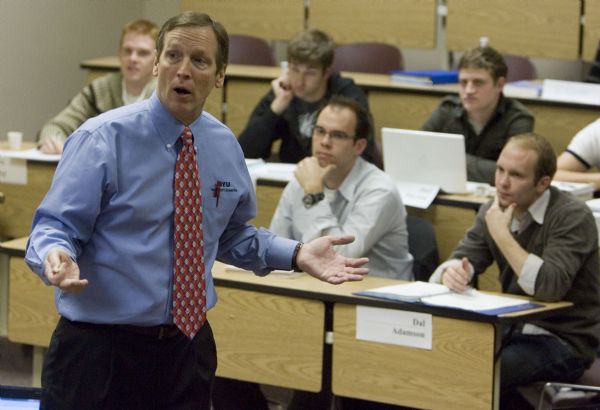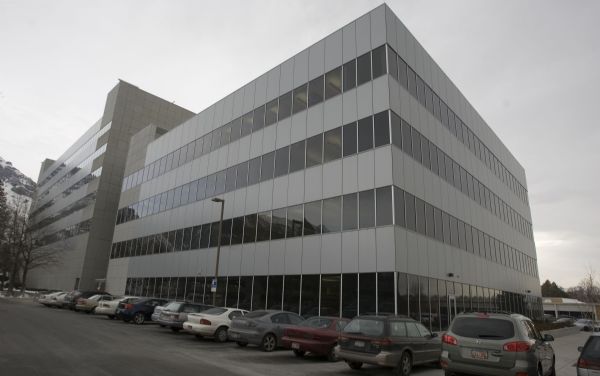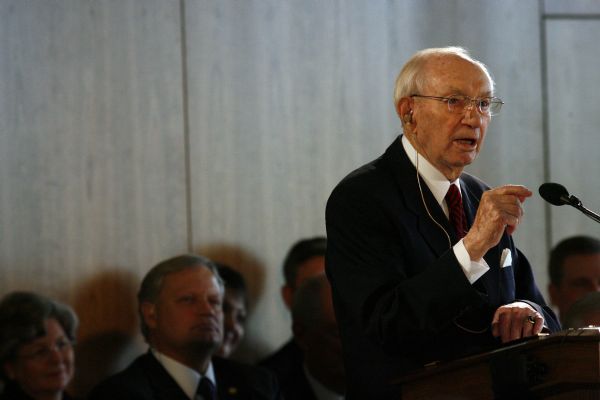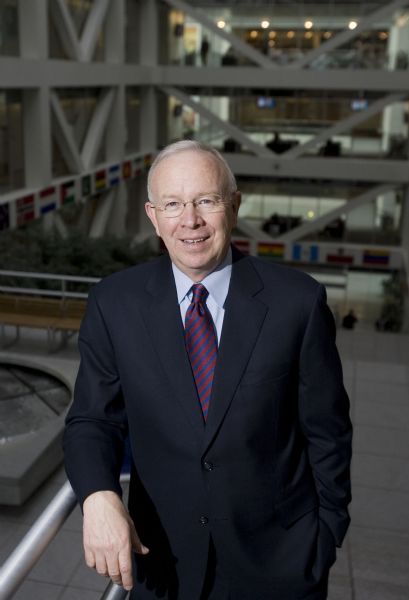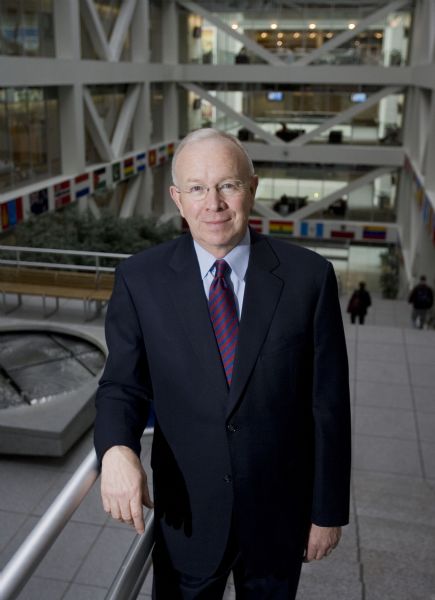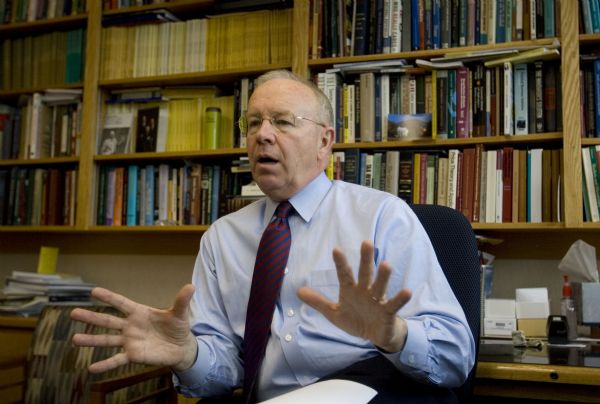This is an archived article that was published on sltrib.com in 2010, and information in the article may be outdated. It is provided only for personal research purposes and may not be reprinted.
Provo » Jeff Dyer, firmly ensconced at The Wharton School, faced a tough decision. He was fast-tracking toward tenure at one of the nation's top-tier business institutions, but after six years in Philadelphia was hearing a call to return to his religious and familial roots.
His father, William, dean at Brigham Young University's Marriott School of Management when Jeff was getting his master's in management there, died in 1997. To help his mother, son Jeff arranged to split his time between Wharton and the Provo school the following year.
Then, "I decided to build something here," Dyer said, accepting BYU's offer to direct what his father established in the mid-1970s -- the school's Department of Organizational Leadership & Strategy (OLS). (The strategy segment was added in the mid-90s.)
His Wharton colleagues at the University of Pennsylvania were surprised. Why would he leave one of the nation's top business schools -- with tenure virtually assured -- and head west to a LDS Church-owned university?
He decided to show them why, and the rest of country is taking notice, as well.
"My goal was to build such a strong program in research [at BYU] that no one would have to apologize for coming here," he said.
Within the past 10 years, through the long-held tradition that published research is an earmark of a top-flight institution, the OLS Department head has done just that.
"We moved from being a very average department in research to a respected department in research," he said. Last year, his group was ranked 18th nationally in faculty publications. Ten years earlier, that ranking was 74th. There were times prior to that when the department didn't even crack the top 100.
The flurry to publish, and thereby raise the school's stature among academics nationwide, has spread to other departments, as well.
But is an impressive research ranking, earned by the school's 130 faculty members and their penchant for getting published in prestigious journals, the full measure of a great school?
Dean Gary Cornia says there's certainly more to it than that.
"A strong business school prepares students not only with the latest research and management skills but also helps them find careers where they can grow personally and expand their influence," said the public-finance specialist who is in his fourth decade at the school and closing in on his second year as dean. "The Marriott School is doing this."
That's accomplished by going beyond just teaching the skills of the various disciplines or for example emphasizing "the workings of the global economy," he said. "We help set them on a course with jobs in top firms. But perhaps most important, we work to cultivate in each of our graduates the importance of character development and ethical behavior.
"We want them to succeed."
Other rankings seem to give weight to the dean's statement. Business Week in 2009 put the School of Management's undergraduate program, with 1,435 juniors and seniors enrolled, fifth in the nation; Public Accounting Report ranked the graduate and undergraduate accounting programs third -- their 15th consecutive year in the top three.
--
Resetting expections » Corey Wride, 33, wrapped up his Master of Business Administration degree three years ago. The Sandy entrepreneur -- he's working on a product that helps foreign speakers learn English -- said his graduate-school experience "reset my expectations." His bachelor's degree had been in computer programing. By the time he finished his MBA, "I transitioned completely from being a guy who likes technology to someone who no longer likes technology just for technology's sake."
In between the two levels of academia, he worked in the real world as a programmer for a company that was not interested in hearing his ideas about improving the business. "It was like, 'Just shut up and code,' " he said of the experience.
For him, BYU's management school "was an amazing playground to sort of experiment in. I got a scholarship to work on my business." Although the school's advisers want graduate students to be on a specific track, he won approval to follow a more general course, taking courses in entrepreneurship and international business.
In fact, one aspect of the program that leaped out at him was the school's emphasis on global business perspectives and its positive nurturing of foreign students.
"Their program for international students is pretty unique," he said. Most other top schools may accept a lot of foreign students in their undergraduate and graduate programs, "but they generally come from well-to-do families who pay their own way. BYU is accepting all sorts of middle- and low-income students who are smart but may not have many resources.
"The experience pretty much changes their lives. For example, BYU will pay for everything if they promise to go back to their countries and help. It is such an amazing opportunity for [them] to get that degree."
--
A global perspective » Assistant Dean Joseph Ogden singled out the school's global-business perspective -- whether for foreign students or for the student body in general -- as a key feature of life at the Provo campus.
"The built-in language capability surpasses any campus in the world," he said, underscoring a reality that many upper-level and graduate students have served missions around the world for the university's owner, The Church of Jesus Christ of Latter-day Saints.
A majority of MBA students, for example, are fluent in two languages; some speak three. This allows the school to test fluency levels and, if they are high enough, issue certificates that document a student's knowledge of foreign business terms and conversational skills.
In addition, students, as did Wride, can take a series of courses emphasizing business abroad. In 2009, Ogden said, 68 students completed field study overseas in such places as Russia and China. That work can lead to certificates in global management in addition to whatever degrees students are pursuing.
Cornia points to the school's rankings, its emphasis on global issues and its programs for international students as ways graduates can become more marketable. Another way is that the school skimmed off 1,359 of the highest-level applicants out of 2,274 who applied for the 2010-09 school year -- a 60 percent acceptance level.
"Students are getting better every year," Cornia said during a conversation in his Tanner Building corner office. "And as they get stronger, they walk into the classroom expecting more out of the faculty.
"The struggle we have is making certain that when students walk into the classroom they have an exceptional experience. We cannot become complacent. ... We have to live up to the expectations that have been imposed on us."
--
Growing demand » Steve Thorley is one of those faculty members who faces increasing expectations.
"The demand continues to grow," said the Finance Department chairman. "People who come here are increasingly bright." Thorley believes that the school's students today would qualify as undergraduates found in Ivy League schools. And faculty who come to Provo have to be much better than those who were attracted two or three decades ago.
"Not only do they have to be phenomenal teachers, they have to build a reputation for scholarly work," he said, echoing the sentiments of OLS Department chairman Dyer.
Getting that high level of faculty raises a significant question. How can BYU attract top-flight teachers when the church-owned university generally limits its faculty search to members of The Church of Jesus Christ of Latter-day Saints?
"Obviously, we have a preference for members" of the LDS Church, said Cornia. "We've been fortunate when we search that we find [church members] at the best schools who want to come here," and, he added, some at BYU are lured away by some of those same schools.
"I don't think we've missed anybody because of our commitment to be a university of faith."
jkeahey@sltrib.com" Target="_BLANK">jkeahey@sltrib.com
BYU's Marriott School of Management in 2009 ranked highly among business schools nationally in a variety of categories:
Undergraduate programs » 5th, Business Week
Accounting » 3rd, Public Accounting Report
Master of Accounting » 3rd, Public Accounting Report
MBA » 16th, Forbes
MBA (most family-friendly) » 1st, The Princeton Review
Organization Leadership & Strategy » 18th in top academic publications, various OLS journals
Student body 2008-09
Men » 1,826; women: 460
Undergraduates » 1,435
Graduate level » 851
Alumni » nearly 50,000
Total undergrad applications » 1,318
Applicants admitted » 850
Total graduate applications » 956
Applicants admitted » 509
Student-to-faculty ratio » 14-1
Source: BYU Marriott School of Management
This is the third in a series of occasional stories about the business schools at Utah's three biggest universities, which are being transformed either through big gifts or new leadership.





